|
I am a Ph.D student in the Department of Electronic Engineering at Tsinghua University, advised by Prof. Yueqi Duan. Before that, I obtained my B.Eng. in the Department of Engineering Physics, Tsinghua University. My research interest lie in 3D computer vision and world model. Feel free to contact me if you are interested in our works or would like to work with us. |
|
|
|
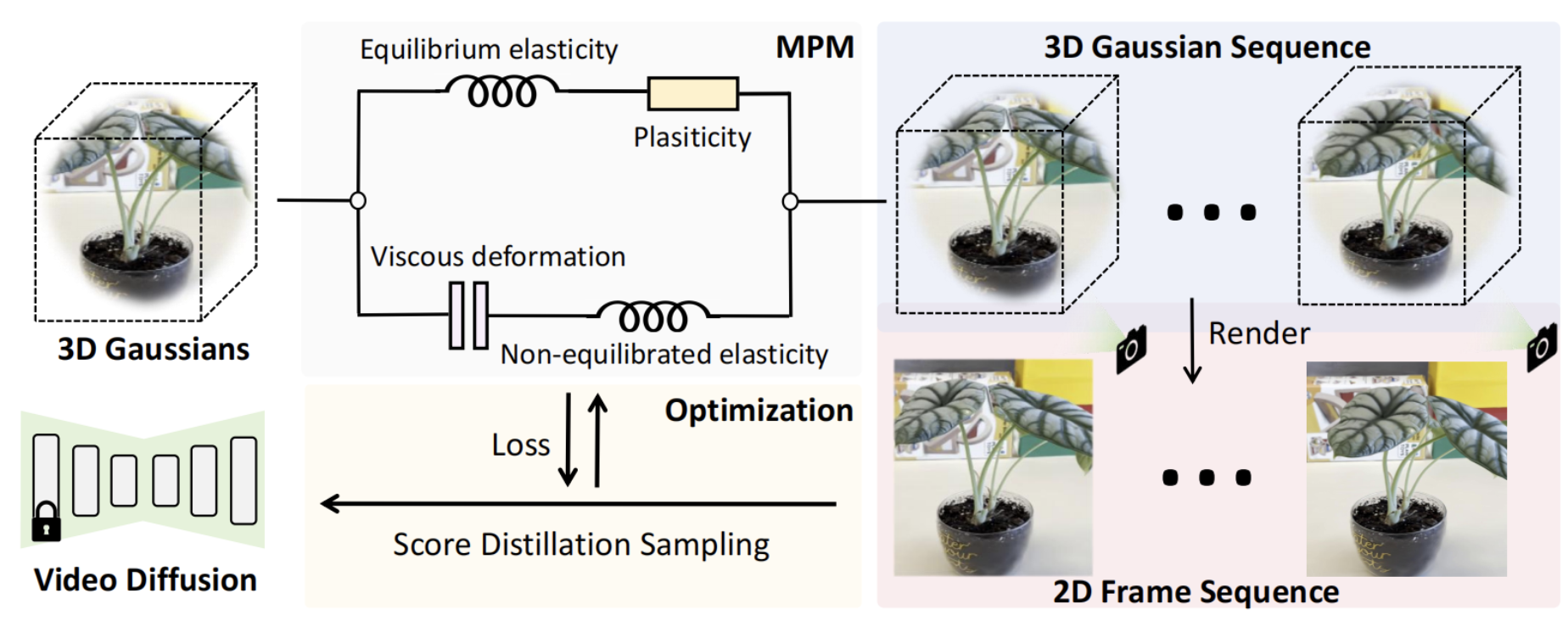
|
Fangfu Liu*, Hanyang Wang*, Shunyu Yao, Shengjun Zhang, Jie Zhou, Yueqi Duan arXiv, 2024 [Paper] [Code] [Project Page] In this paper, we propose Physics3D, a novel method for learning various physical properties of 3D objects through a video diffusion model. Our approach involves designing a highly generalizable physical simulation system based on a viscoelastic material model, which enables us to simulate a wide range of materials with high-fidelity capabilities. |
|
*Equal contribution †Project leader |
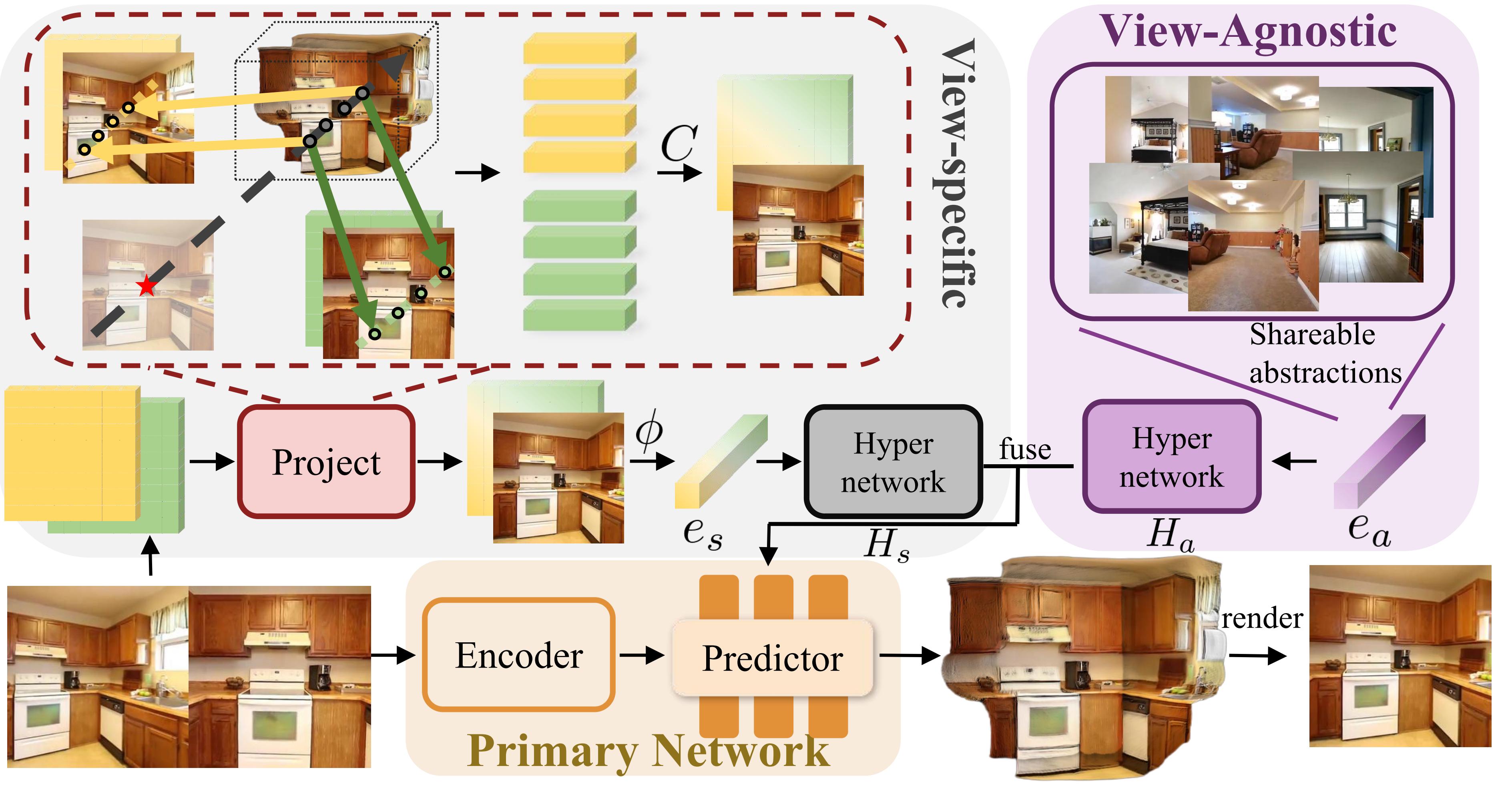
|
Haixu Song, Xiaoke Yang, Shengjun Zhang, Jiwen Lu, Yueqi Duan IEEE Transactions on Image Processing (TIP), 2025 [Paper] In this paper, we propose UniqueSplat, a view-conditioned feed-forward 3D Gaussian Splatting model to reconstruct customized 3D radiance fields for each view query. UniqueSplat learns the view-conditioned information as a prior and incorporates this knowledge into network parameters, so that Gaussians are dynamically adjusted in accordance with different views. |
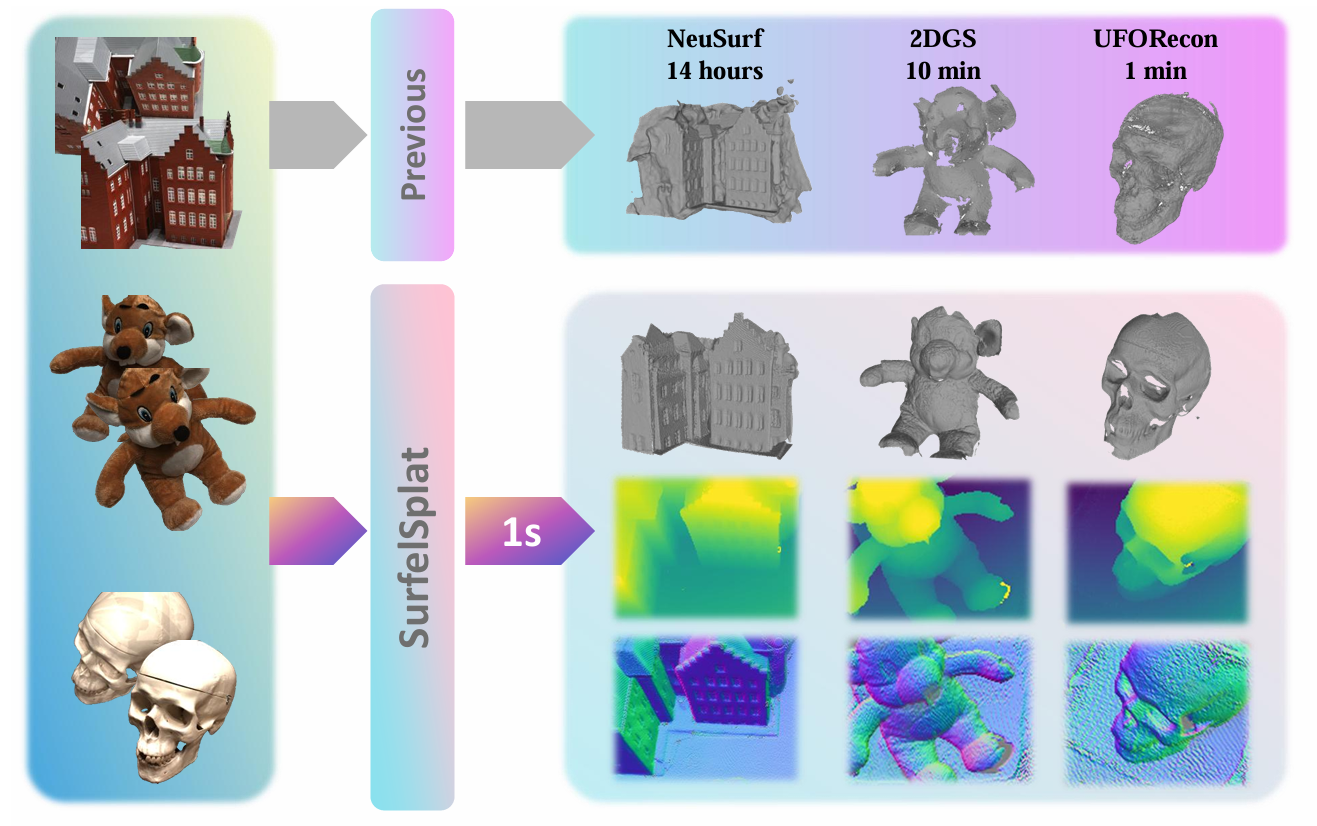
|
Chensheng Dai*, Shengjun Zhang*, Min Chen, Yueqi Duan Thirty-ninth Conference on Neural Information Processing Systems (NeurIPS), 2025 [Paper] We observe that conventional feed-forward structures struggle to recover accurate geometric attributes of Gaussian surfels because the spatial frequency of pixel-aligned primitives exceeds Nyquist sampling rates. We propose SurfaceSplat, a feed-forward framework that generates efficient and generalizable pixel-aligned Gaussian surfel representations from sparse-view images. |
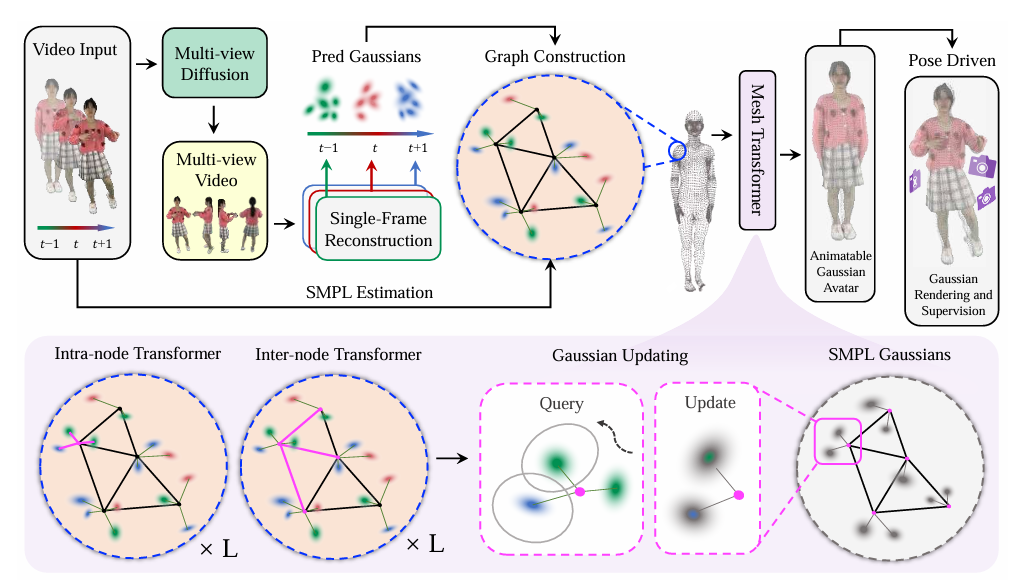
|
Yifan Liu*, Shengjun Zhang*, Chensheng Dai, Yang Chen, Hao Liu, Chen Li, Yueqi Duan IEEE/CVF International Conference on Computer Vision (ICCV), 2025 [Paper] [Code] [Project Page] In this paper, we propose Human Gaussian Graph (HGG) to generate generalizable and animatable Gaussian representations. We leverage the human structure prior to recover generalizable and animatable Gaussian representations |
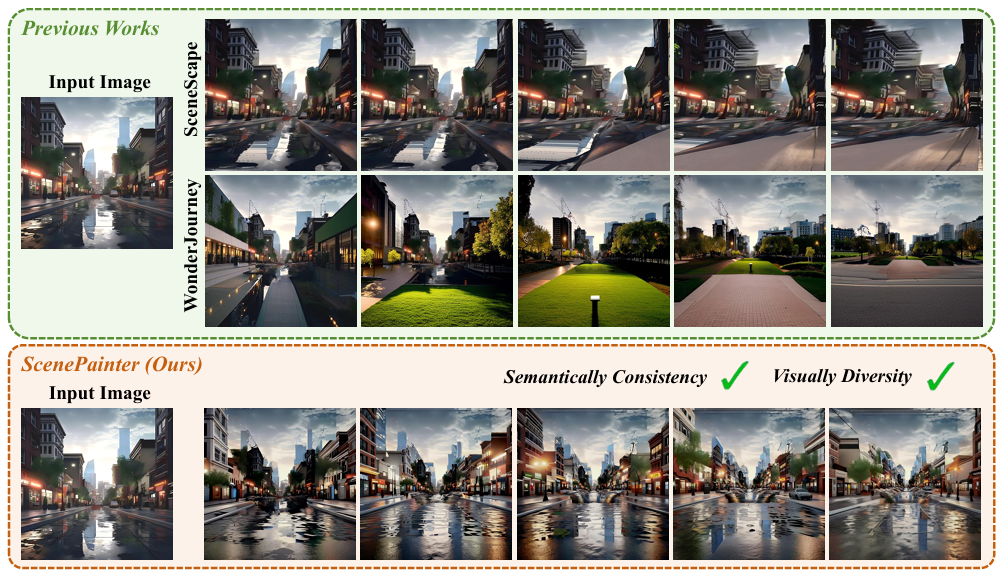
|
Chong Xia, Shengjun Zhang, Fangfu Liu, Chang Liu, Khodchaphun Hirunyaratsameewong, Yueqi Duan IEEE/CVF International Conference on Computer Vision (ICCV), 2025 [Paper] [Code] [Project Page] In this paper, we propose ScenePainter, a new framework for semantically consistent 3D scene generation, which aligns the outpainter's scene-specific prior with the comprehension of the current scene. |
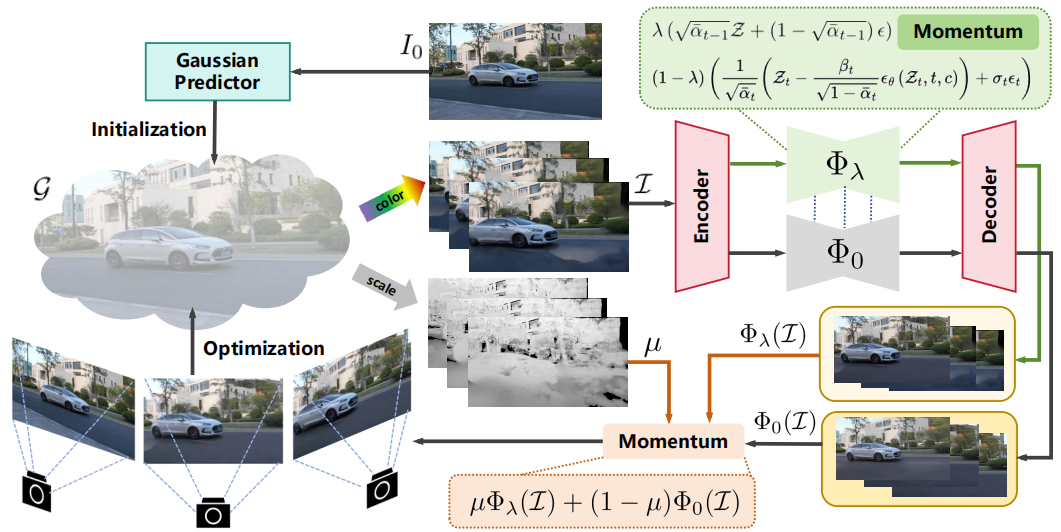
|
Shengjun Zhang, Jinzhao Li, Xin Fei, Hao Liu, Yueqi Duan IEEE/CVF Conference on Computer Vision and Pattern Recognition (CVPR), 2025 [Paper] [Code] [Project Page] In this paper, we propose Scene Splatter, a momentum 3D scene generation paradigm to introduce existing scene information as momentum in the generation process, to balance the generative prior and scene consistency. |
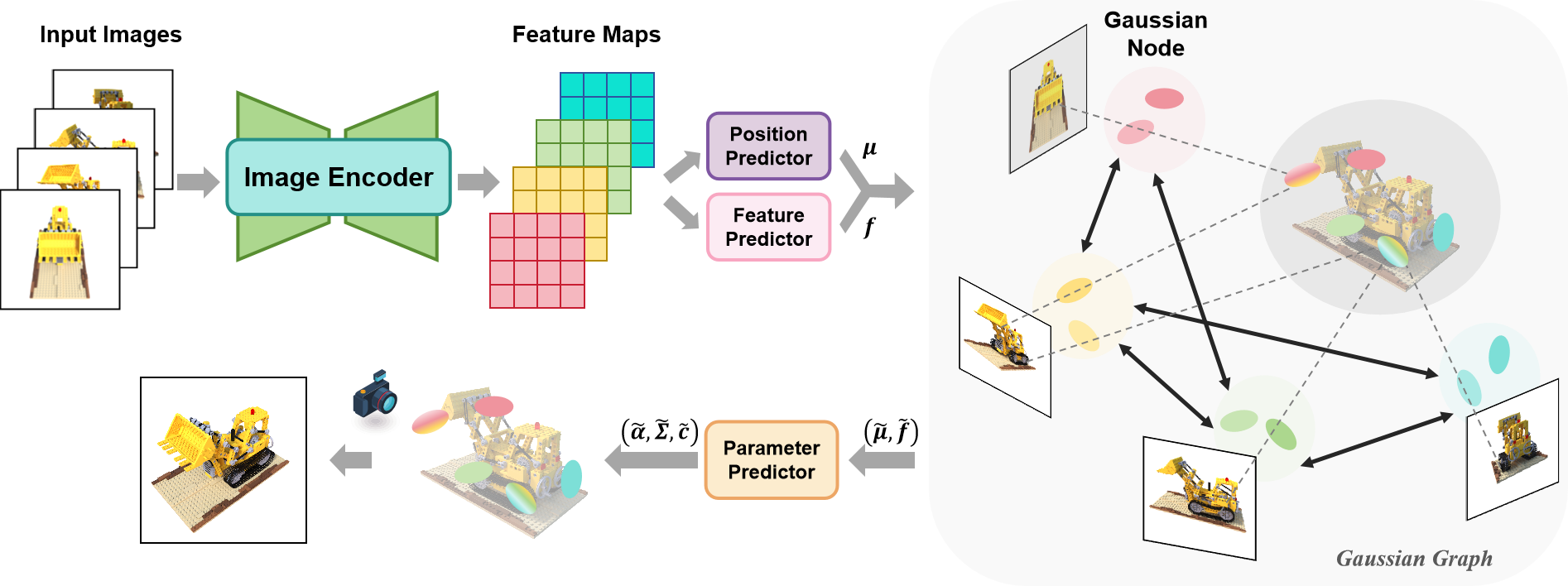
|
Shengjun Zhang, Xin Fei, Fangfu Liu, HaiXu Song, Yueqi Duan Thirty-eighth Conference on Neural Information Processing Systems (NeurIPS), 2024 [Paper] [Code] [Project Page] In this paper, we propose Gaussian Graph Network (GGN) to generate efficient and generalizable Gaussian representations. |
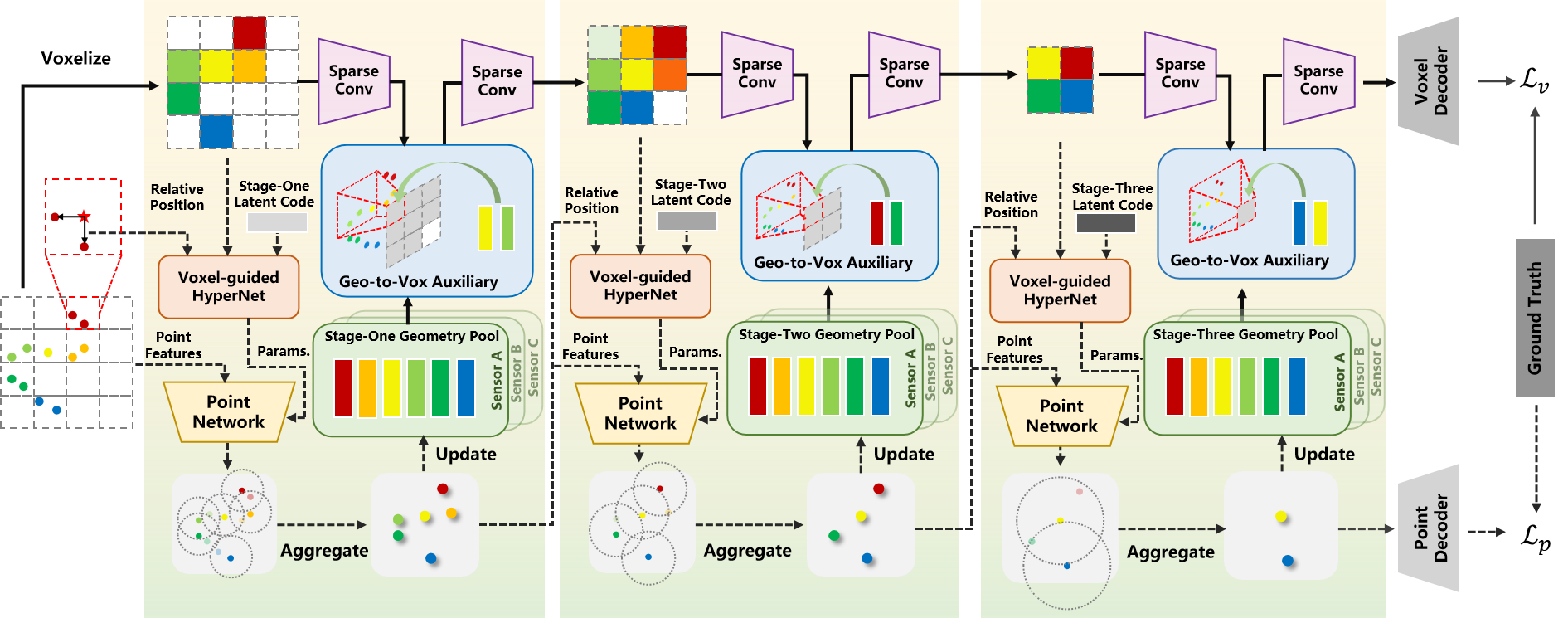
|
Shengjun Zhang, Xin Fei, Yueqi Duan IEEE/CVF Conference on Computer Vision and Pattern Recognition (CVPR), 2024 [Paper] [Code] In this paper, we propose geometry-to-voxel auxiliary learning to enable voxel representations to access point-level geometric information, which supports better generalisation of the voxel-based backbone with additional interpretations of multi-sensor point clouds. |
|
|
|
|
|
|
© Shengjun Zhang | Last update: Jun. 26, 2025